Eat Know Love Istria: New Edition Reveals Why Istria is Top Gourmet Destination
April 13, 2022 - The new issue of the gourmet magazine Eat Know Love Istria is out exploring stories, experiences, and the heritage of beautiful Istria, all through one of life's greatest joys - food.
Although many call it a hidden gem, Istria has long been recognized around the world for its enticing natural beauty, rich cultural heritage, and excellent gourmet offer that combines modern and traditional in a unique way, providing an exceptional experience to all who find themselves there. Today, this green oasis of playful experiences is, quite deservedly, at the very top of the world's gourmet locations, and research shows that every third guest visits Istria for the smell and taste of traditional local cuisine.
The new issue of the gourmet magazine Eat Know Love Istria brings stories about this magical land of giants and unforgettable gourmet pleasures, and continues to reveal many Istrian attractions and well-hidden secrets, told through customs related to the rich tradition woven around this area. A special treasure lies in the traditions that have been shaped throughout history and still live today as part of the charm in the everyday lives of the local population. One of the best ways to discover this daily is to eat.
Istrian cuisine originates from the sea, millennial olives, and the heritage of vines, wild plants and medicinal herbs, domestic animals, and many fish, which according to the old proverb, once done with the sea should swim in olive oil and wine. The gold of Istria, its extra virgin olive oil is the base of almost every dish in this area, a symbol of quality and true pleasure at the table, and in recent years has won the world's most prestigious awards.
"Istria is simply magical - almost like the perfect film set with a sense of timelessness and at the same time mystery in all its traditional beauty. In fact, Istria is so special, different, that just watching the sunset will instantly fill you with positive emotions and make you aware that you are just enjoying a region that is the best example of the romantic Mediterranean! Istria is my eternal inspiration for everything I do, and only a part of everything that Istria represents can be found in the new gourmet magazine Eat Know Love Istria", said the editor Zorica Bocić, who does not hide her fascination with Istria and love for everything she does to promote the Istrian region.
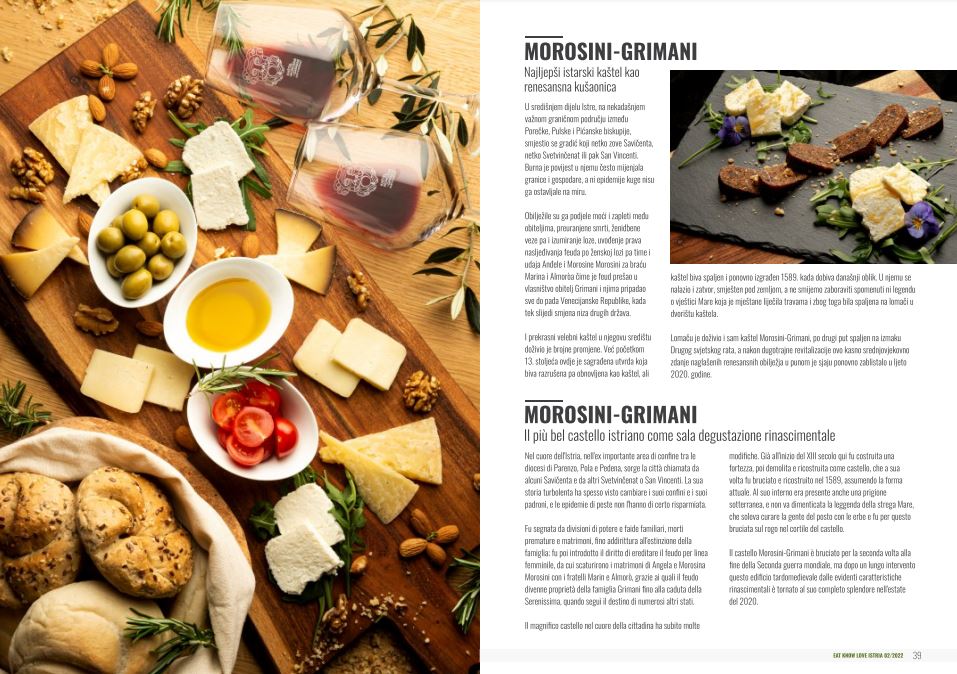 The gourmet magazine, a result of the cooperation between the tourist company Maistra and the tourist boards of Rovinj, Vrsar, Bale, Kanfanar, and Svetvinčenat, as well as the Association of Craftsmen Rovinj, presents many traditional recipes that nurture Istrian cuisine and celebrate the history and tradition of this region. Famous Istrian prosciutto and aromatic cheese, organic fruits and vegetables from the fertile Istrian crljenica, freshly caught fish from the clear Adriatic, wines from sunny vineyards on the slopes of fairytale hills. These are the original elements of Istria that the producers and caterers combine into a colourful and recognizable eno-gourmet mosaic. It is a combination of the products of the Istrian country and the hardworking hands of the hosts who have been slowly but unstoppably climbing the ladder of success for decades.
The gourmet magazine, a result of the cooperation between the tourist company Maistra and the tourist boards of Rovinj, Vrsar, Bale, Kanfanar, and Svetvinčenat, as well as the Association of Craftsmen Rovinj, presents many traditional recipes that nurture Istrian cuisine and celebrate the history and tradition of this region. Famous Istrian prosciutto and aromatic cheese, organic fruits and vegetables from the fertile Istrian crljenica, freshly caught fish from the clear Adriatic, wines from sunny vineyards on the slopes of fairytale hills. These are the original elements of Istria that the producers and caterers combine into a colourful and recognizable eno-gourmet mosaic. It is a combination of the products of the Istrian country and the hardworking hands of the hosts who have been slowly but unstoppably climbing the ladder of success for decades.
We can also discover many interesting events that attract more and more visitors to Istria every year and gather only the best of the best from the world and domestic gourmet scene. For those who are curious, the magazine contains stories and legends of the Istrian region, as well as a small dictionary of the Istrian dialect so that they can fully indulge in this unique experience. While traveling in Istria, every road and turn will surely take you on a new gourmet adventure, related to the history and culture of this region.
The magazine is available at the link: https://infovrsar.com/media/ddvot15s/eat-love-know-hr-it-web.pdf, and can also be found on the tourist boards of Rovinj, Vrsar, Bale, Kanfanar, and Svetvinčenat.
For more, check out our lifestyle section.
Plešivica Sparkling Wines Served With Breakfast at Special Event
June 6, 2021 - Guests enjoyed a pleasant encounter with the best selection of Plešivica sparkling wines and breakfast snacks, in the hills outside Zagreb.
A sparkling breakfast in the Chez Suzy vineyard for the weekend was the real formula for outdoor hedonism, reports Turističke Priče. At Plešivica, Šember wineries, Šoškić court wines, Drago Damir Režek, and a guest from the Krašić vineyards, Šimanović winery, presented their sparkling wines for which this wine region is famous. In addition to Plešivica sparkling wines, guests enjoyed strawberries and indigenous products of Zagreb County and copanjek, and homemade game salami. As an announcement of the upcoming Sparkling Zagorje breakfast in Zagorje, štruklji, zlevanka, cheeses, chocolate mousses, and chocolate cake were also served.
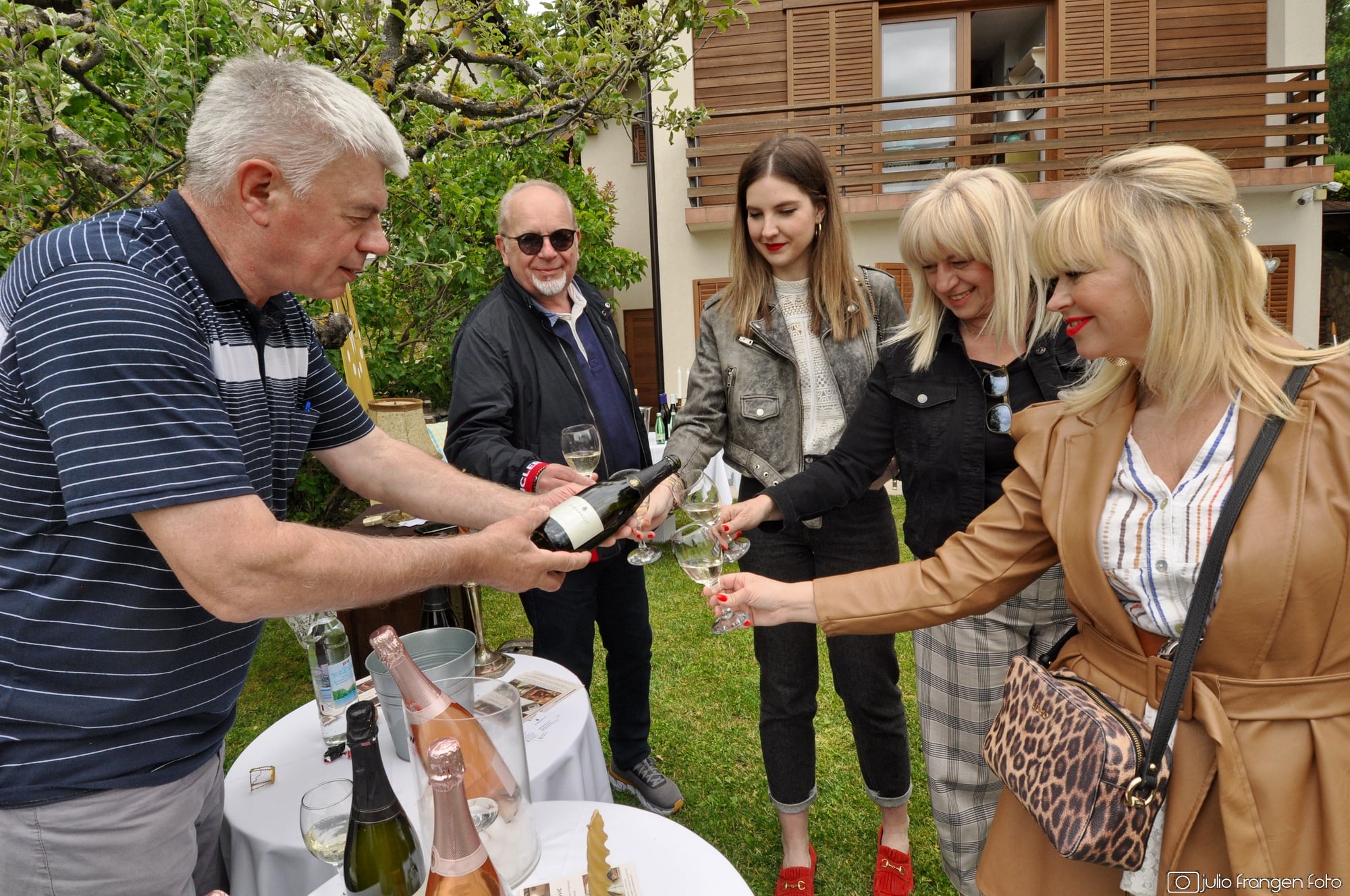
Salon of Sparkling Wines
The novelty of this year's Sparkling Breakfast edition was the guided pairing of food and Plešivica sparkling wines. The event was driven by the idea of the hostess Suzana Košćak, gastronomy students Izabela Andrašić, Adrian Karačić, Filip Poštenik, Bruno, Karić cooked at the event. The menus were paired with champagnes, after a hearty breakfast dominated by cheeses and strawberries, continued with freshly baked homemade focaccia and steak tartare that future chefs prepared next to the guests. It was a real "cooking show", and then from a small three delicious risottos came out in hot kitchens full of original ideas, the first with apple and celery, the second with asparagus, the third with strawberries. An additional joy of pairing was homemade macarons with champagne. Demanding but purposefully selected, the yellow lemon cream cookies were paired with white brut champagnes, and the pink champagnes matched the pink strawberry sour cream cookies. Macarons were made by a gastronomy student, Ana Tokić.
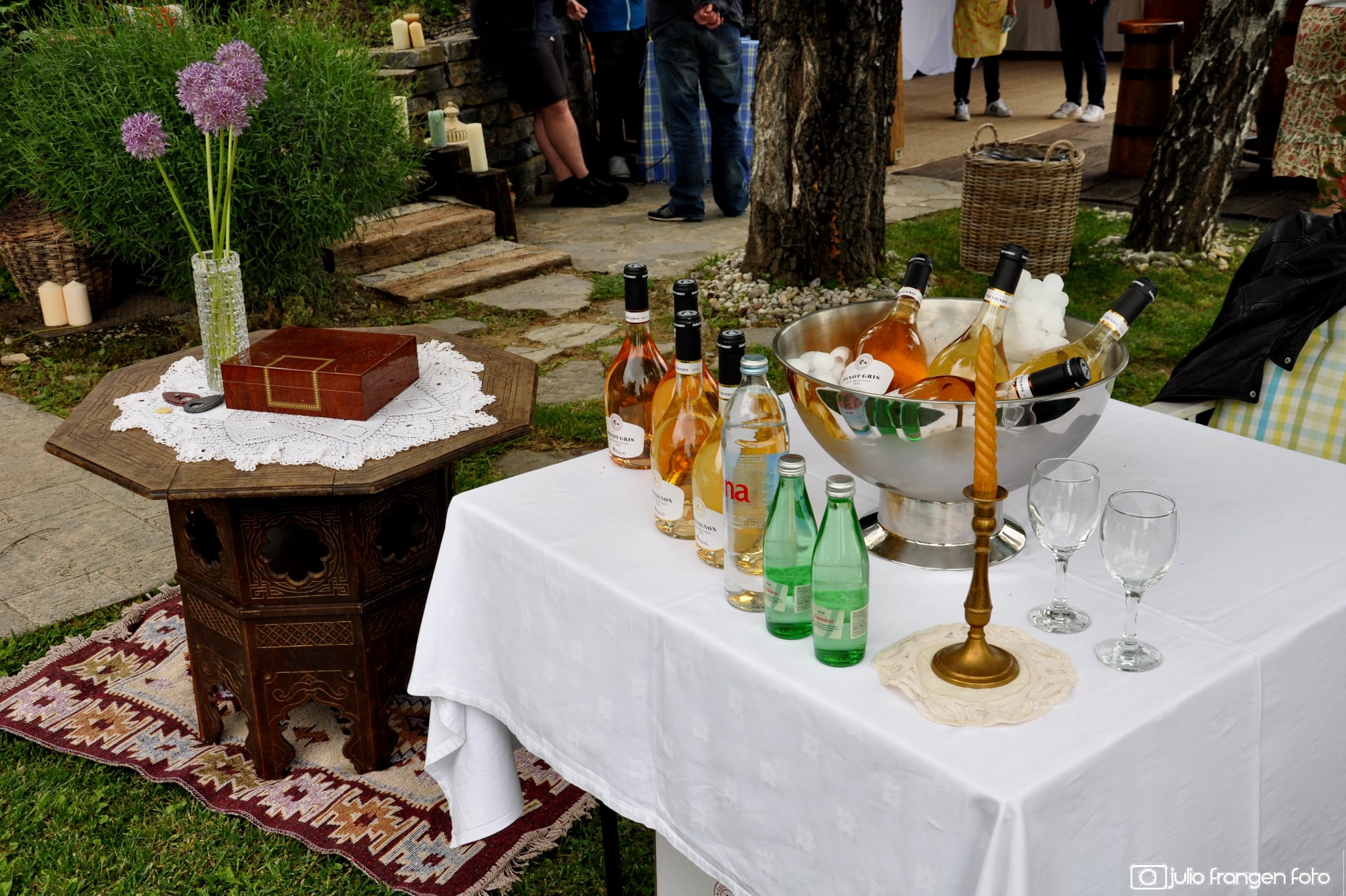
Salon of Sparkling Wines
The eye pleased, the palate celebrated, and the wines matched. The snacks were mesmerizing and the guests truly enjoyed themselves. An additional interesting and refined gathering was the presentation of a new wine from each winery, the so-called "An example of Plešivica". In this part of the program, Šember winery presented its new Chardonnay 2020, Šoškić wines, Sauvignon blanc 2020, Drago Damir Režek wines - Pinot Noir 2017, Šimanović wines presented Frankovka 2017. A special surprise of the day was Šoškić brandy, many did not know that such a pearl exists on Plešivica, it was sipped with gusto, gentlemen "spiced" it with cigars, and ladies with cigarillos. As an additional spice to the wonderful country atmosphere, similar to Provencal, served antique props from the Comedy Theater as well as tables and accessories from DVD Plešivica.
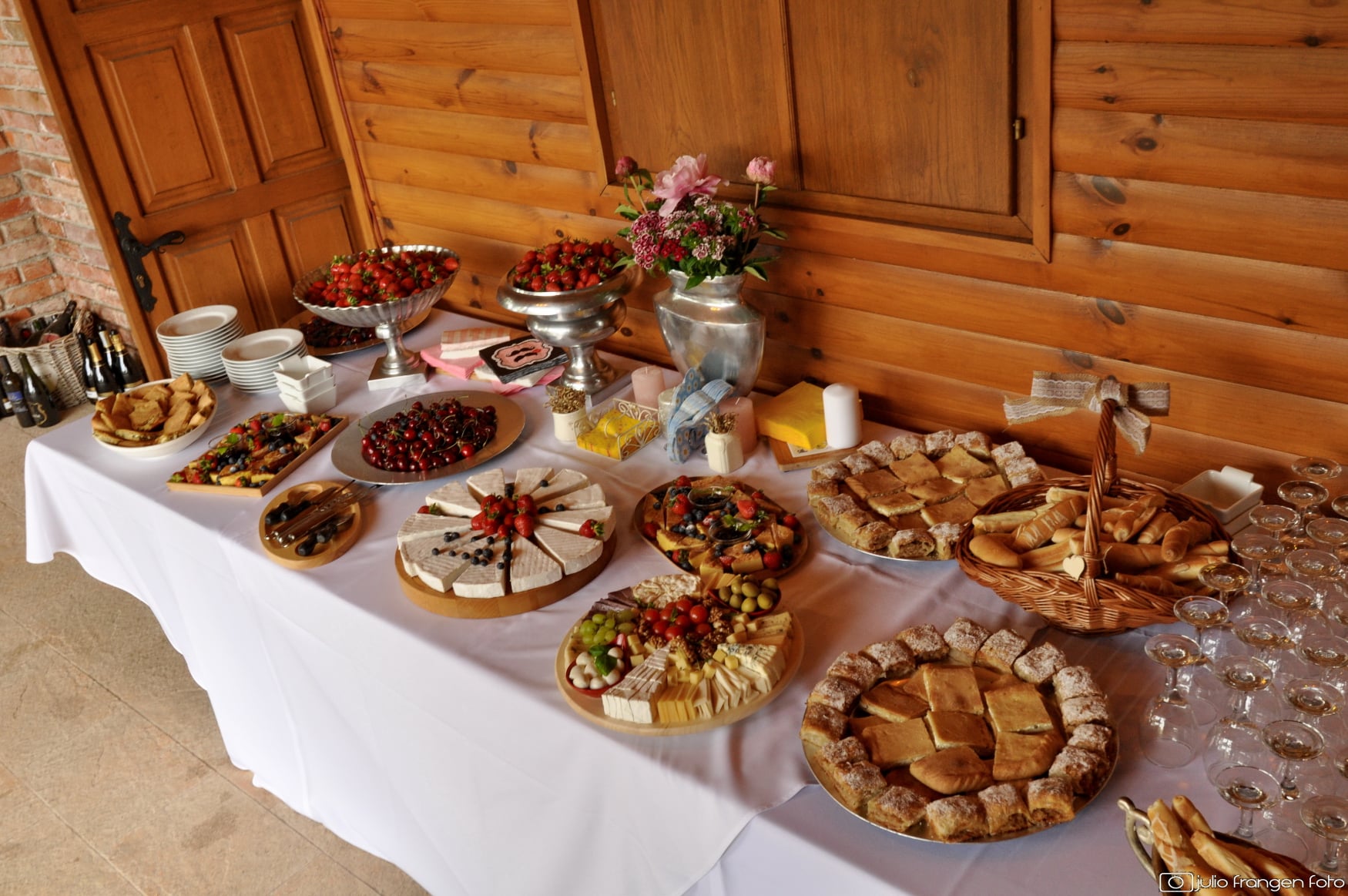
Salon of Sparkling Wines
Delighted guests, sparkling wine lovers, but also wine connoisseurs, sommelier, oenologists, wine merchants, in pleasant conversations with winemakers learned about Plešivica wines and selected snacks and the potential of various forms of tourist offer Plešivica in the context of branding wine destinations and entire vineyards through targeted, smaller events.
Croatian wines and grapes are among the best in the world, and you can find more information about them in Total Croatia’s Guide to Croatian Wine HERE. Total Croatia’s articles are now available in your language!
For all you need to know about Zagreb in 2021, make sure to bookmark Zagreb in a Page.
For more on lifestyle in Croatia, follow TCN's dedicated page.
Pay for a Wine and Tourist Tour in Dubrovnik with Cryptocurrencies!
March 30, 2021 - After a unique local tourist experience, it's time for fine wine, but what if you only have cryptocurrencies? Say no more. With Ivan Vuković and Sasha Lušić, you can pay for a wine and tourist tour in Dubrovnik with cryptocurrencies.
"Many tourists do not carry cash with them, and people from developed countries do not handle cash at all. Although they have been in circulation for 60 years, cards are still a high-tech thing for us, and we are afraid to embrace the novelties," says Ivan Vuković, a tourist guide of Dubrovnik.
Paying with cryptocurrencies is very simple - you can have a card or a mobile option, which converts all payments into currency. "Simple, contactless - which is important for covid regulations and one more way of paying," says Sasha Lusic, the owner of D'vino wine bar Dubrovnik.
Book a trip and pay with crypto or order your favorite wine and pay for it in the same way - life has become simpler. These two entrepreneurs are also targeting the younger gadget clientele because, as they say, it is sometimes difficult to change the habits of the older clientele.
Ivan and Sasha say the pandemic has given them a chance to reset and turn to slower and more sustainable tourism. "Why not offer something sustainable while letting people know that we follow trends," say these entrepreneurs, adding that cryptocurrencies are gold today.
"Unfortunately, it is easy to be successful in Croatia because people are passive. Sad but true," says Ivan. "Sasha and I are constantly exchanging ideas, thinking, putting things on paper. We are not passive; we follow trends very closely."
After considering the idea, they made a few calls about whether it is possible to charge in that way. When the software engineers confirmed that is possible to do that, they just went for it. Some hotels and gas stations already have this option, but in the circles of wineries and tourist guides, payment in cryptocurrencies does not exist.
Ultimately, they are hoping for a more significant inflow of money, precisely because many people keep their money in various cryptocurrencies. They have to spend the money they earn by trading cryptocurrencies.
"Of course, everything depends on the season, but with this, we are doing a long-term story. Also, we are the first to remember," concludes Ivan.
For the latest travel info, bookmark our main travel info article, which is updated daily.
Read the Croatian Travel Update in your language - now available in 24 languages.
Kvarner Wines in Spotlight: Two "Sparkling Kvarner” Workshops held in Zagreb
March 22, 2021 - Hotel Dubrovnik announced the 5th Salon of Sparkling Wines with two sparkling Kvarner workshops on Friday, March 19.
Fiuman reports that two sparkling wine workshops were held in front of loyal visitors: Sparkling Kvarner and Natural Sparkling (Croatia & Slovenia).
At the first workshop, six wines produced by the pét-nat method (fr. pétillant naturel) were presented at a "blind" tasting. With the leader dr. Sc. Nina Levičnik, the founder of the Salon of Sparkling Wines network and a big fan of "natural" sparkling wines, the participants learned what the terms pét-nat, méthode ancestrale, and col fondo have in common and how they differ from other methods.
The presenter emphasized the importance of "terroir" in wine production with this ancestral method. The Croatian representatives were Tomac, Šember, Veralda, and the Slovenian Atimo, Keltis, and Štemberger.
At the second workshop, participants learned that Kvarner is the third Croatian wine region in terms of sparkling wine production. The recently founded the Kvarner Wine Association which today has as many as 10 sparkling wine producers who were presented at the workshop under the auspices of the Kvarner Tourist Board. Sparkling wines in Kvarner are produced from the original varieties - žlahtina, belica, mast - charmat, and the traditional method.
The moderator, Dr. sc. Žarko Stilin, secretary of the Kvarner Wine Association, one of the loudest promoters of original Kvarner wine varieties, organizer of several wine events, the most important of which is the International Wine and Gastronomic Festival WineRi, spoke about the interesting and special features of Kvarner sparkling wines.
Participants tasted 10 sparkling wines: Maličić winery Šipun, Porin Estate Winery Katunar, Valomet PZ Vrbnik, Gospoja PZ Gospoja, San Marino Wine houses Pavlomir, Soubze catering and Nada shop, Stara Bakarska Vodica PZ Dolčina Praputnjak, Biser žlahtine Ivan Katunar - Plovanić vina and Ružić - OPG Ružić.
Workshop leader dr. sc. Žarko Stilin proudly stated that sparkling wines in Kvarner have a long tradition, and with the Kvarner Wine Association, the promotion will be even more visible through many activities, education on table culture, organization of round tables, lectures, and scientific conferences to promote Kvarner with the support of Kvarner Tourist Board.
The wine workshops were an introduction to other sparkling events ahead of the 5th Salon of Sparkling Wine Zagreb, on June 11, 2021, on the Oleander terrace of the Hotel Esplanade. The date has been targeted to meet the summer and the upcoming tourist season when the consumption of sparkling wines will be more frequent than usual and any promotion is welcome.
For more about lifestyle in Croatia, follow TCN's dedicated page.
27th Vinistra Wine Manifestation Comes Back to Poreč in May 2021
March 2, 2021 – Good news for all wine lovers, experts, and winemakers, as the 27th Vinistra wine manifestation will take place from 7 to 9 May 2021 in Poreč, together with its traditional overture, 12th International Evaluation "World of Malvasia."
If there are no surprises and if the epidemiological measures allow it, the 27th Vinistra wine manifestation will be held this year after a one-year break due to the coronavirus pandemic. The preparations are underway, and this year's organizers have a somewhat more difficult task because everything should follow the Headquarters' measures and recommendations.
"As we did not hold the traditional En Primeur in Zagreb this year due to epidemiological measures, Vinistra will be an excellent opportunity to present new vintage wines, excellent in all characteristics, especially for red varieties. For us winemakers, the only positive side of 2020 was the exceptional harvest. The last two years have hit the wine and tourism sector hard, so we are very much looking forward to this year's event, meeting our partners, customers, and lovers of Istrian wines," said Nikola Benvenuti, president of Vinistra, winemakers' association, and winegrower.
He adds that the location and accompanying program will depend on epidemiological measures.
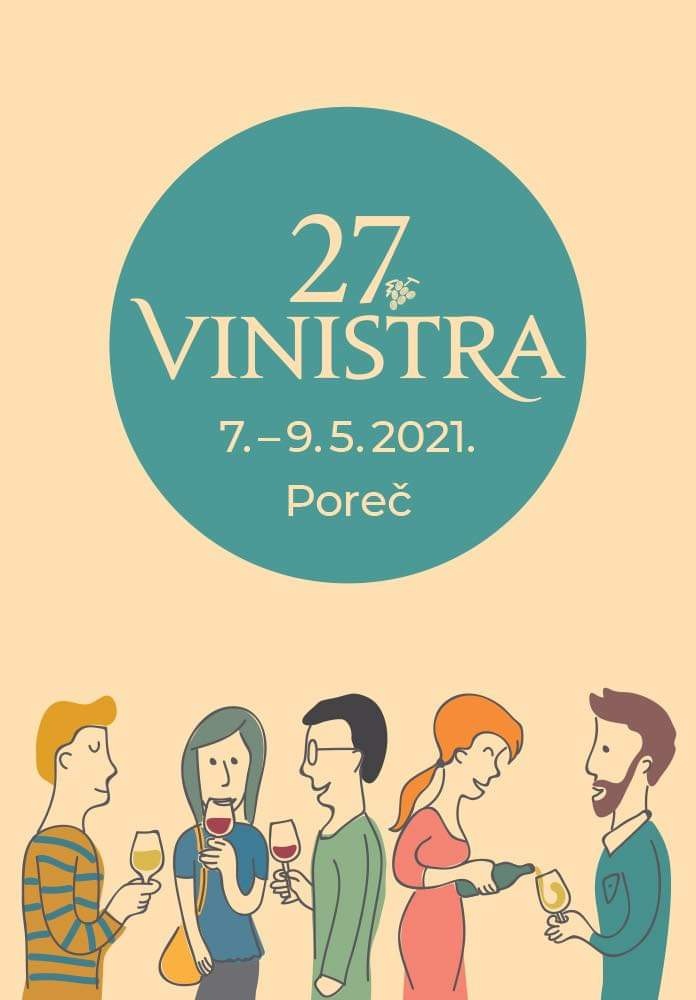
Vinistra
Traditionally, the best overture for Vinistra is the international evaluation named the World of Malvasia, which will be held for the 12th time, from April 12 to 16, 2021, at the Parentium Plava Laguna Hotel in Poreč. Year after year, the World of Malvasia breaks records in quality and number of samples.
"The informal world championship of the most famous Istrian variety is being held this year as part of a three-day international evaluation of wine and spirits, which brings together the most famous wine experts from Croatia and the region. Of course, everything will be in line with epidemiological measures because our health and safety come first. As usual, the evaluation results will be made public as part of the 27th Vinistra," says Benvenuti.
As 24sata recalls, the traditional Vinistra fair was held in the Žatika hall in Poreč for years before the tradition was interrupted for the first time last year due to the coronavirus pandemic. Almost all important politicians, presidents, businessmen used to come to Vinistra, as well as those who wanted to be photographed or filmed by journalists while they are enjoying the top drops of 'grape' juice.
Vinistra is a regional and international exhibition of Istrian wines and equipment for viticulture and winemaking. The longest-running exhibition of this type is traditionally held in the Istrian town of Poreč. The fair consists of an evaluation and exhibition part, and besides wine, olive oils and brandies are also evaluated.
Istria is continually improving wine quality and is a top eno-gastronomic destination. This is confirmed by the constant increase in the number of indigenous varieties' samples, more quality of average wine samples, and new names awarded by an expert jury every year.
To read more about lifestyle in Croatia, follow TCN's dedicated page.
Vinart Grand Tasting: Biggest Wine Event in Croatia to be Held in Spring 2021
January 29, 2021 – Winemakers are delighted as it's announced that the Vinart Grand Tasting, the most important business wine event, will take place in the spring of 2021.
As Turizam24 reports, the Vinart Grand Tasting will be held on April 30 and May 1, 2021, in Zagreb's Lauba. The organizer, the company Vinart, moved the fair's date from the beginning of March to the beginning of May due to the uncertainty of the epidemiological situation and the duration of anti-epidemic measures.
As a reminder, last year's Vinart Grand Tasting was the last professional wine fair in Europe. It was held on March 6 and 7, 2020, just before the first lockdown, while many details about the COVID-19 virus were unknown.
"It was uncertain until the last second, and in the weeks before the fair itself, we practically didn't sleep because of worries. We prepared the program, and after the fair, we organized a study trip to Croatian wine regions for a group of about twenty important European and American journalists. We invested a considerable amount of money, hoping that we would make a big step to recognize Croatian wines and winemakers globally, and everything was so risky and uncertain. In the end, only three journalists canceled our trip, and others came and were delighted with the offer and quality of Croatian wines. We did everything in our power to eliminate the risk of transmitting the virus," says Saša Špiranec, director of Vinart.
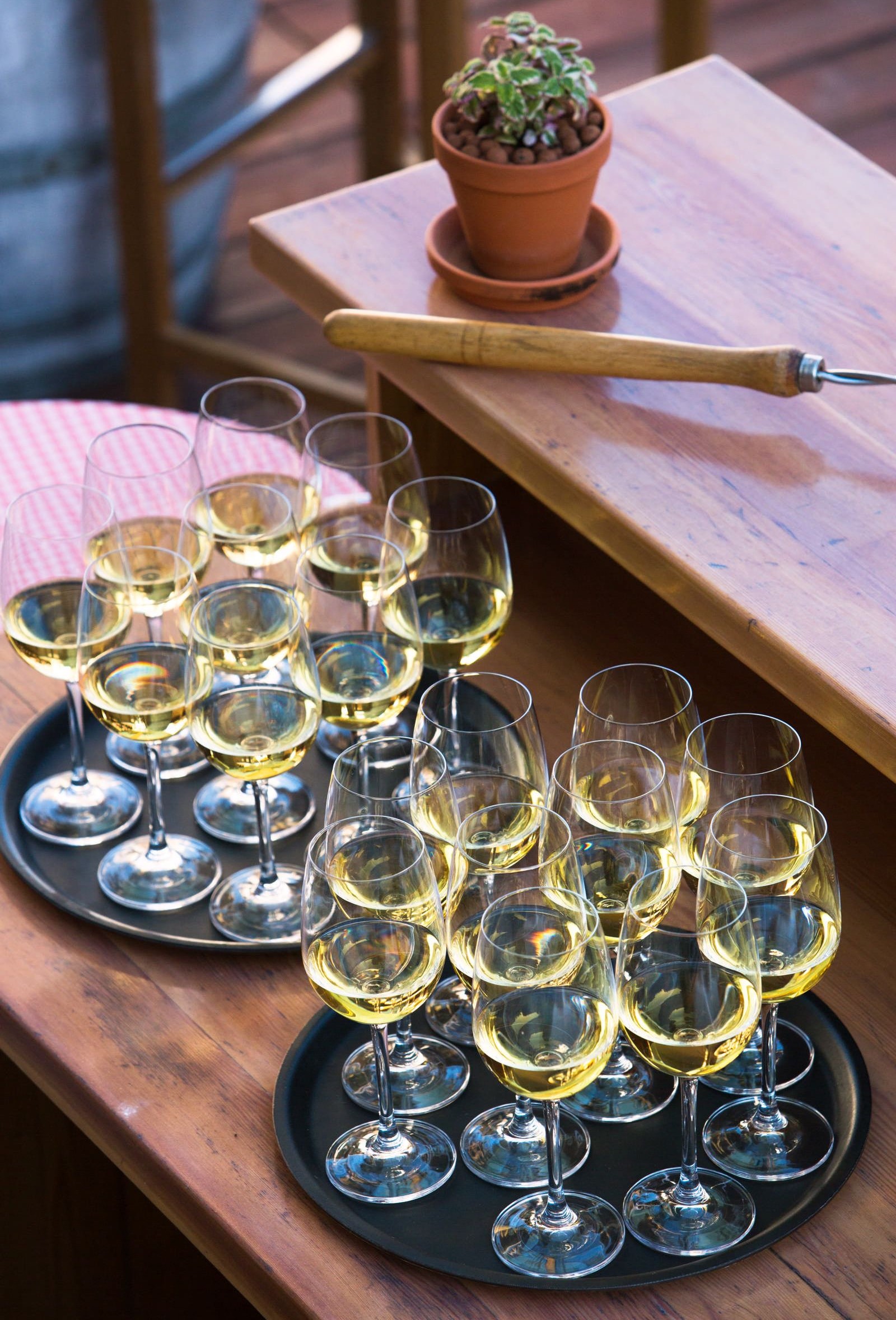
Wine tasting / Copyright Romulić and Stojčić
At last year's fair, there was no information that anyone had become infected. From that experience, they are ready to boldly enter into the preparation of this year's edition of the fair.
If the economy doesn't restart in May, we can say goodbye to winemaking
On this occasion, Špiranec answered questions about the situation in winemaking after the pandemic 2020. As expected, the autumn wave caused the most significant damage to this branch of the economy, extremely important for the tourism sector.
"Judging by the comments we received from winemakers, last year's drop in turnover was more than obvious. Different wineries have different experiences, but the average should be between 20 and 30 percent drop overall. The year's start was a shock, and sales stalled, but a good spring and early summer made up for that decline. The second, autumn wave did more damage that was only partially offset by sales in December when many winemakers had good results in direct sales due to gifts and increased household consumption. If such problems remained in 2021, they would surely become insurmountable for many wineries. If the situation after the Easter moves towards full normalization, then most wineries will recover," said Špiranec, who explained the chosen date in the still uncertain first part of 2021.
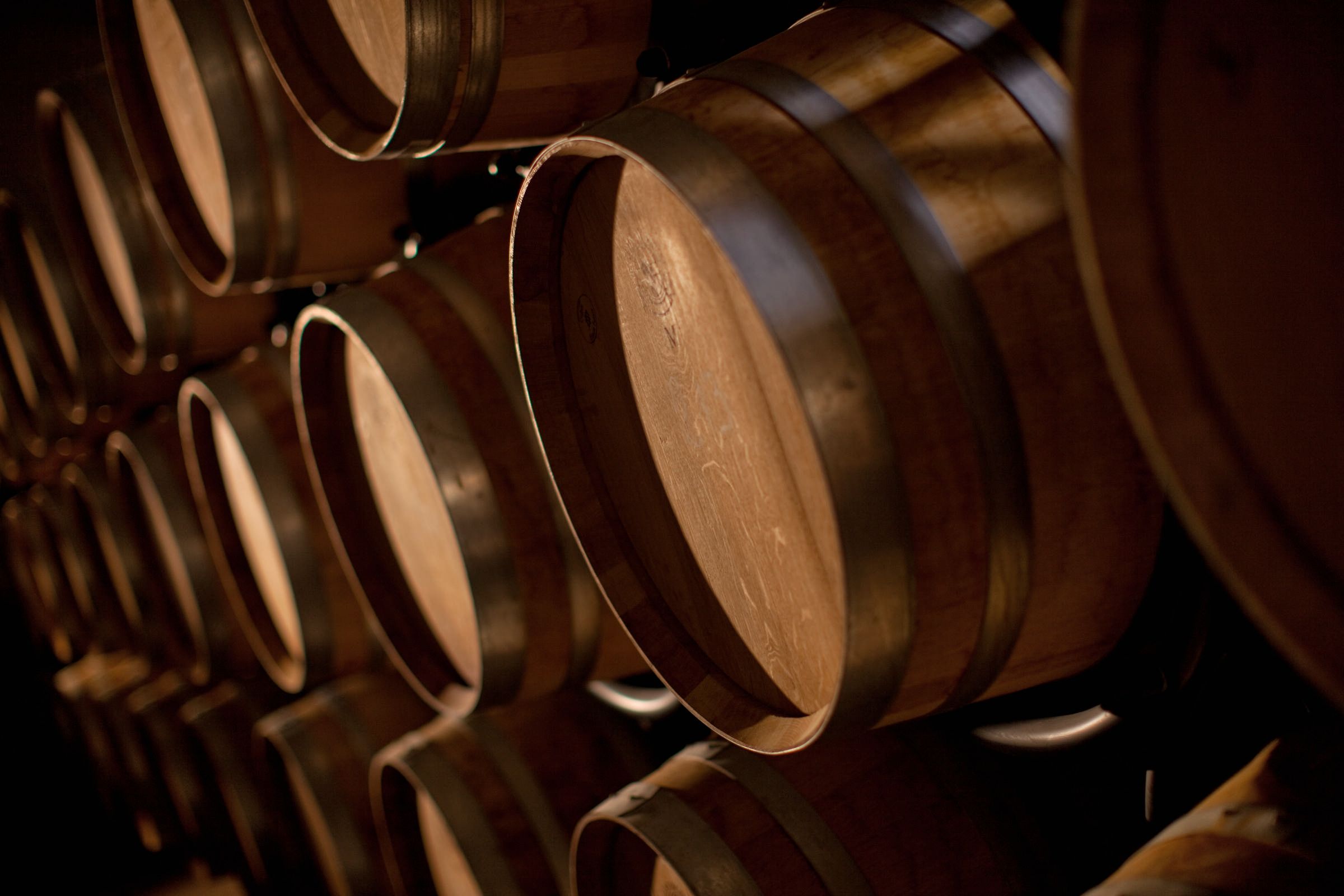
Copyright Romulić and Stojčić
"We have chosen dates when spring will already be in full swing. The days are long and sunny, and we believe that in the meantime, the measures and vaccination will significantly reduce the risks. We think May is the last moment for normalization, regardless of the circumstances with COVID-19, and that is why we chose the first days of May for the fair. If the economy does not start working normally in May, we can say goodbye to winemaking as its branch," concluded Špiranec, the leading Croatian expert in winemaking.
This announcement speaks best about the consequences of a pandemic. They hope that the situation will normalize after Easter. In that case, we can still expect the recovery of most stakeholders on the wine scene.
2021 is crucial for winemaking
Winemakers and wine business people are delighted by the announcement of the Vinart Grand Tasting.
"The capacity, which is further limited this year, is almost full after the first week of opening the applications. Winemakers and their customers send us numerous messages that they cannot wait for the fair and the start of activities and wine events. Now, things that they used to complain about, like too many fairs and trips, seem to them to be a blessing compared to this past year of passively waiting and staring into space," announces Špiranec.
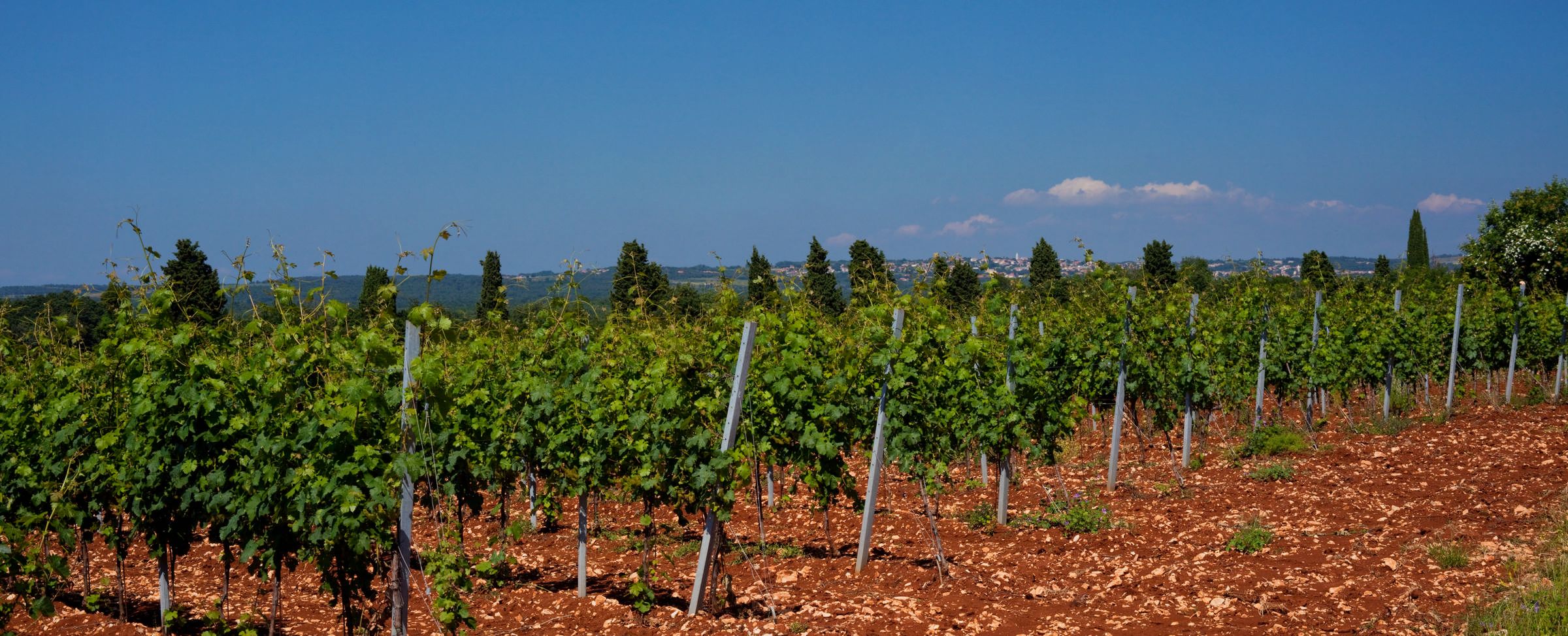
Vineyard in Istria / Copyright Romulić and Stojčić
It is evident that this year is crucial for winemaking. Without the opening and launch of the economy in the spring, there will be no winemaking. It remains to be seen how the situation will develop by May, but any such announcement and event that gives hope that the recovery will begin soon is optimistic. For winemakers, as well as for caterers, it is necessary to start economic activities no later than Easter. Otherwise, we will have a total collapse.
To read more about lifestyle in Croatia, follow TCN's dedicated page.
Ludbreg Winemakers' Wines Thrive Due to God-Given Microclimate
January 23, 2021 – The feast of St Vincent's Day, Vincekovo, could not be celebrated this year due to the epidemiological situation, but Ludbreg winemakers continue to focus on their wine production. Thanks to the very favorable climate, the Ludbreg area is suitable for planting vineyards, and local winemakers hope to soon get their well-deserved place on the Croatia's wine list.
Vincekovo, which was celebrated yesterday, January 22, in the Ludbreg area, used to be celebrated in Globočec when the plantations were blessed. The main event was a traditional and unique exhibition of young wines from the Ludbreg and surrounding vineyards, which was canceled this year due to strict epidemiological measures and a challenging situation.
It is an additional blow for all caterers who suffered the most in the corona crisis and wine producers. Local winemakers and winegrowers will wait for some better times to meet and rejoice with friends.
Sanja and Tomislav Stručić, top winemakers from Ludbreg, who met with TCN in Ludbreg last year, told their business story for the Epodravina.hr portal.
Family vineyard three kilometers from the center of the world
"We were pleased by the announcement that we could reopen our doors in February, but if we won't open until Easter, as announced, the season is questionable. We are very affected," says winemaker Sanja Stručić.
However, despite the pandemic, wine lovers are not resting. Caring for the vineyards is a year-round work, essential for producing good wine. The season begins now when the first pruning is done and lasts until the harvest.
"Last year, we estimated that, given the situation with the coronavirus, we would have stocks of wine. Therefore, we reduced the grape yield during pruning in the spring. We left grapes for sparkling wine and wines to age. We want to produce quality, not quantity, that is, high-quality wines," says the Stručić family.

Sanja and Tomislav Stručić with Paul Bradbury in 2020, Total Croatia News
Their beautiful wine-growing hills, clean air, excellent wine, and hospitality evoke the love of land and viticulture that began in 1984 with a family vineyard just three kilometers from the center of the world. Sanja's father, Dragutin Crnković, once planted the first vineyard there, passed on his love of viticulture to his daughter, and introduced her to the wine business.
Emphasis is on the premium line of nature wines
Sanja's husband, Tomislav, also fell in love with winemaking and viticulture. In 2000 they founded the Winery, and in 2017 they produced the first sparkling wine in the region. They are the new wine style leaders in Varaždin County, and today they create top and quality wines.
Stručić Winery has become one of the most famous and successful and began more severe production in 2002. The emphasis is on the premium line of wines represented by nature wines. The premium line consists of carefully selected bunches hand-picked from selected vines. Sanja showed her love, passion, and care for each of these grapes before they become wine.
"Only ripe grapes are picked from the petiole by hand, clean and healthy. Fermentation on own yeasts and grapes, without the addition of selected yeasts, produces natural wines. This top line comes in different bottles and has different labels. We have been making it in small batches, approximately 750 bottles, for four years now, every year with a new vintage," says Sanja.
Back in 2016, Stručić family even produced a special edition of Sara Kolak Chardonnay to celebrate the local Olympic javelin gold-medal winner.
Journalists who encourage stories about gastronomy, tourism, and hedonism are also responsible for the turn in wine production. The Stručić family decided to take advantage of the microclimate and their plantations' position, which enable them to produce excellent raw materials for the production of different wine styles.
"We researched and realized that our region is a microclimatic God-given. While visiting various wine fairs and festivals, we realized we want to make different wines. The exhibitions were an incentive for us to expand our knowledge to be as good as possible. We also visited wineries in Italy to get a better insight into their viticulture and winemaking that is at a high level, and to apply experiences and some wine secrets in our vineyard and cellar," says Sanja on how they started producing sparkling wine and natural wine.
Produced the first sparkling wine in the region
The family vineyard initially had 3,500 vines and was later expanded with new plantations. Today, they cultivate three and a half hectares of land with 14,000 vines. It consists of plots named after the youngest members: Lucija, Luka, and Petra, and the newest plantation was named after their niece Katarina. The plots are registered by varieties and years of planting. The rulers of their vineyard are Graševina, Chardonnay, Rhine Riesling, Sauvignon, Portuguese and Yellow Muscat.
"We produce Graševina, Chardonnay, Sauvignon, Rhine Riesling, and mixed wines. Poštenjak is a blend – a mixture of Graševina, Chardonnay, and Pinot Gris. We make fruit wines and liqueurs, and sparkling wine. We produce about 25,000 bottles a year," says Tomislav.
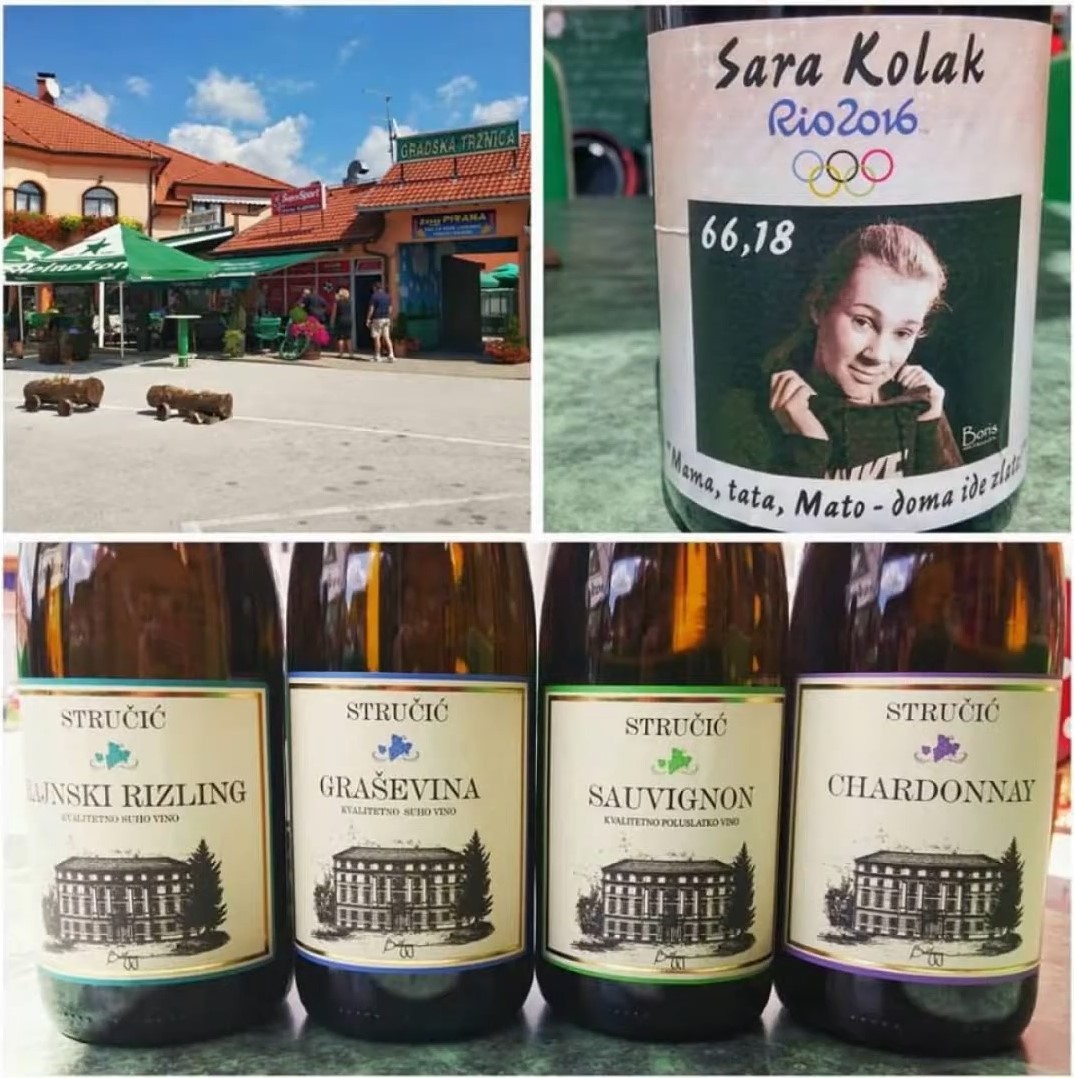
The opening of the Ludbreg Wine Road about ten years ago encouraged a stronger development of their winery. Thus, in 2017, Vinarija Stručić produced the first sparkling wine from the Ludbreg vineyards, which has the label "blanc de blancs" (namely "white from white"), which means that only white grapes were used in its production, that is, Chardonnay.
"After top quality wines, every winemaker wants to produce sparkling wine. It is the crown of your work, as if, for example, you have won the World Cup. The production of sparkling wine was our desire for a step higher. And now, three years ago, we are doing batch after batch," Sanja points out.
The Croatian Wine Institute, which evaluates and issues a quality certificate, rated their sparkling wine as top quality. And there is only five percent of top wines in Croatia, so they expanded their production in 2018 with rose sparkling wine from the Portuguese. It is a unique rarity in Croatia, produced by only one other winemaker on Plješivica.
Microclimatic conditions with a continental climate favor the quality ripening of grapes, so the Podravina and Zagorje regions are God-given for sparkling wine production. The Ludbreg vineyards' climate is ideal for producing light wines with little alcohol, sparkling wine, and wines of late harvests.
Decanter quality certification
Stručić Winery sells its products throughout Croatia. In Ludbreg, visitors can taste their wines in the Bonaparte coffee bar, which they own, as well as the Amalia catering facilities, Pivnica Mejaši, and Hotel Crnković.

"Rhine Riesling is mostly associated with the name of our winery. It is our flagship and our most sought after wine on the market. Then follow Graševina, Chardonnay, Portuguese, Sauvignon… Premium wine lines, sparkling wines, aged, and nature wines are distributed to the Adriatic coast," says Tomislav.
The secret behind the Sučić Winerys's success, Sanja points out, is harmony, great love, patience, a lot of sacrifices, and constant investments. Proof of quality arrived last August when the Stručić Winery won a bronze medal for Chardonnay and recommendations for Rhine Riesling and Graševina at the most influential wine evaluation – the Decanter World Wine Awards 2020 in London.
"It is a confirmation that we make quality wine. With these recognitions, we have increased visibility," says Tomislav with satisfaction.
Ludbreg vineyards on the wine list of Croatia
For wines to achieve top results, a lot of education, work, and knowledge is needed, so the Stručić family cooperates with the leading Croatian sommelier and Decanter judge Siniša Lasan. With Varaždin County's cooperation, Siniša visited several wineries and tasted wines, discussed problems, and gave his view of the current situation in winemaking in the county.

Continental tourism is in the beginning. Tourism Ministry began to give it importance and encourage it only a few years ago.
"The Ludbreg and Varaždin vineyards are neglected. They are not marked on Croatia's wine list, and our winemakers are very hardworking but self-effacing. A dozen of us from all over the county will have to sit down, compare wines, listen to the profession to style them if necessary so that we stand out together with quality. I believe that we will soon mark our vineyards on the wine list, which would raise the price, and we could sell our wines more easily on the doorstep," Sanja is optimistic.
"Viticulture is a demanding activity that requires a lot of attention because wine is alive and should be continuously monitored. Without love for the vineyard and wine, there is no progress, "the Stručić couple agrees.
However, the biggest reward in their work is that the interest in winemaking is shown by their 17-year-old son Luka. He wants to enroll at the Faculty of Agriculture and become a wine expert, oenologist. Thus, when the time comes, to the family's satisfaction, the winery will be taken over by the third generation, which will cultivate, enrich, and further create new top-notch wines.
To read more about Ludbreg, follow our dedicated page.
In Cultura Veritas: Successful International Cooperation of 40 Winemakers
December 6, 2020 – With the project In Cultura Veritas, 200 kilometers of wine roads and 80 cultural heritage sites were connected in the cross-border area between Zagreb County in Croatia and the Obsotelje and Kozjansko subregions in Slovenia.
As Lokalni.hr reports, the main goal of this recently completed project, which lasted 28 months and is worth one million euros, was to contribute to the attractiveness, attendance, and protection of the cultural heritage of the area and increase economic activity through the development of a new sustainable cross-border destination. The goals were also to strengthen the capacity of local stakeholders and the comprehensive promotion of tourist destinations from the Zagreb County and the Slovenian subregions Obsotelje and Kozjansko.
The In Cultura Veritas project was implemented by Zagreb County, with partners the Museum Documentation Center and the Association of Croatian Travel Agencies. Slovenian partners were the Sotla Development Agency, the Municipality of Šmarje pri Jelšah, and the Maribor Agricultural and Forestry Institute.
On behalf of Zagreb County, the project was presented by Ivana Rendulić Jelušić, who pointed out that thanks to this project, the attractiveness of the offer of cultural and wine tourism in Zagreb County was increased following the requirements of modern visitors.
The cooperation of about 40 winemakers from the area of Zelinska, Samoborska, and Plešivička wine roads, the towns of Samobor, Jastrebarsko, and Sveti Ivan Zelina, and their city museums have borne fruit.
As Večernji.hr reports, the attractions of wine and cultural tourism within the new destination have been promoted by the application of modern digital tools, the improvement of the visitor infrastructure, and the renewal of cultural heritage.
This project idea was developed thanks to the recognition of common and insufficiently promoted tourism potentials in the cross-border project area. The area has a rich and somewhat forgotten cultural and historical heritage preserved in about 80 cultural heritage sites located along 200 km of wine roads.
The centuries-old tradition of wine production is an important part of life in this area, and the quality of the wine is confirmed by numerous awards that adorn the walls of wineries on Plešivica, Zelina, Samobor (Croatia), and Šmarje-Virštanj wine roads (Slovenia). It is in this area that the oldest vine in the world is located, the one from Maribor. Also, the fluttering and fresh white wine Kraljevina, which is believed to have been drunk by the famous Beethoven, is an autochthonous variety produced only in the Zelina area in Croatia.
Zagreb County was the leading partner of this project and thus digitized the tourist offer of the new cross-border tourist destination. A digital catalog with the cultural and wine offer of this area is available on the project website, where you can find information about winemakers, museums, natural heritage sites, photographs, multimedia content, and interesting facts and legends about famous people associated with the project area.
The digital catalog is also available on a mobile application, as well as on tourist machines and smart benches set up by the Zagreb County in the center of the cities involved in the project – Sveti Ivan Zelina, Jastrebarsko, and Samobor.
To read more about lifestyle in Croatia, follow TCN's dedicated page.
85% of Croatians Drink Wine, Survey Shows
ZAGREB, October 25, 2020 - Eight-five percent of Croatians drink wine, whether occasionally or frequently, a survey shows.
The survey was conducted by Ja Trgovac magazine and Hendal market research agency in September on a representative sample of Croatian citizens aged 16 and over.
As many as 78% of respondents said they preferred Croatian wines, as opposed to 7.6% who rather drank foreign wines, while 14.5% were undecided.
The survey revealed that 8% of Croatians drink wine on a daily basis, 21% once a week, 20.4% once a month, while 20.7% said they drink wine only on special occasions. 14.8% drink wine rarely and 15.2% never.
A total of 48.4% of respondents said they prefer red wine to white, which is preferred by 44.3% of those interviewed, while only 7.3% said they like pink wine (rosé) best.
Traditional Grape Harvest Feast Held in Northern Croatia
ZAGREB, Sept 26, 2020 - The 50th edition of the traditional grape harvest feast took place in the northern town of Pregrade on Saturday under the auspices of Croatian President Zoran Milanovic.
Attending the feast in the vineyards of the wine-making cellar Zdolc, President Milanovic commented on the grape harvest rituals in the country, and called on the Croatians "to drink a little, drink well", and in this context, he called for the consumption of local wines produced throughout Croatia.
Representatives of the tourist board recalled that the roots of the traditional grape harvest feast in Pregrada went back to1939, and the first edition of the festival was held in 1971.
Average wine consumption per capita in Croatia 22 liters in 2018
In the 2017/2018 wine-making year in Croatia, the average wine consumption per capita was 22 liters, according to the National Bureau of Statistics (DZS) data.
The total production of wine in 2018 was 726,000 hectolitres, and wines with protected designation of origin accounted for the majority of the total production (470,000 hectolitres, 64.8%).
Varietal wines account for 4.1% of the total production, and other wines for 31.1%.
The DZS data show that the total wine export in the 2017/2018 wine-making year was 232,900 hectolitres, while the initial stock was 712,800 hectolitres.
Total domestic wine consumption in the 2017/2018 wine-making year was 984,700 hectolitres, and other wines accounted for the largest part in the total consumption (468,000 hectolitres, 47.6%). The degree of self-sufficiency, that is, the ratio of production and total domestic consumption of wine, was 74%.
For the latest travel info, bookmark our main travel info article, which is updated daily.
Read the Croatian Travel Update in your language - now available in 24 languages


